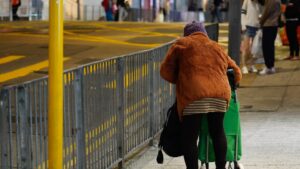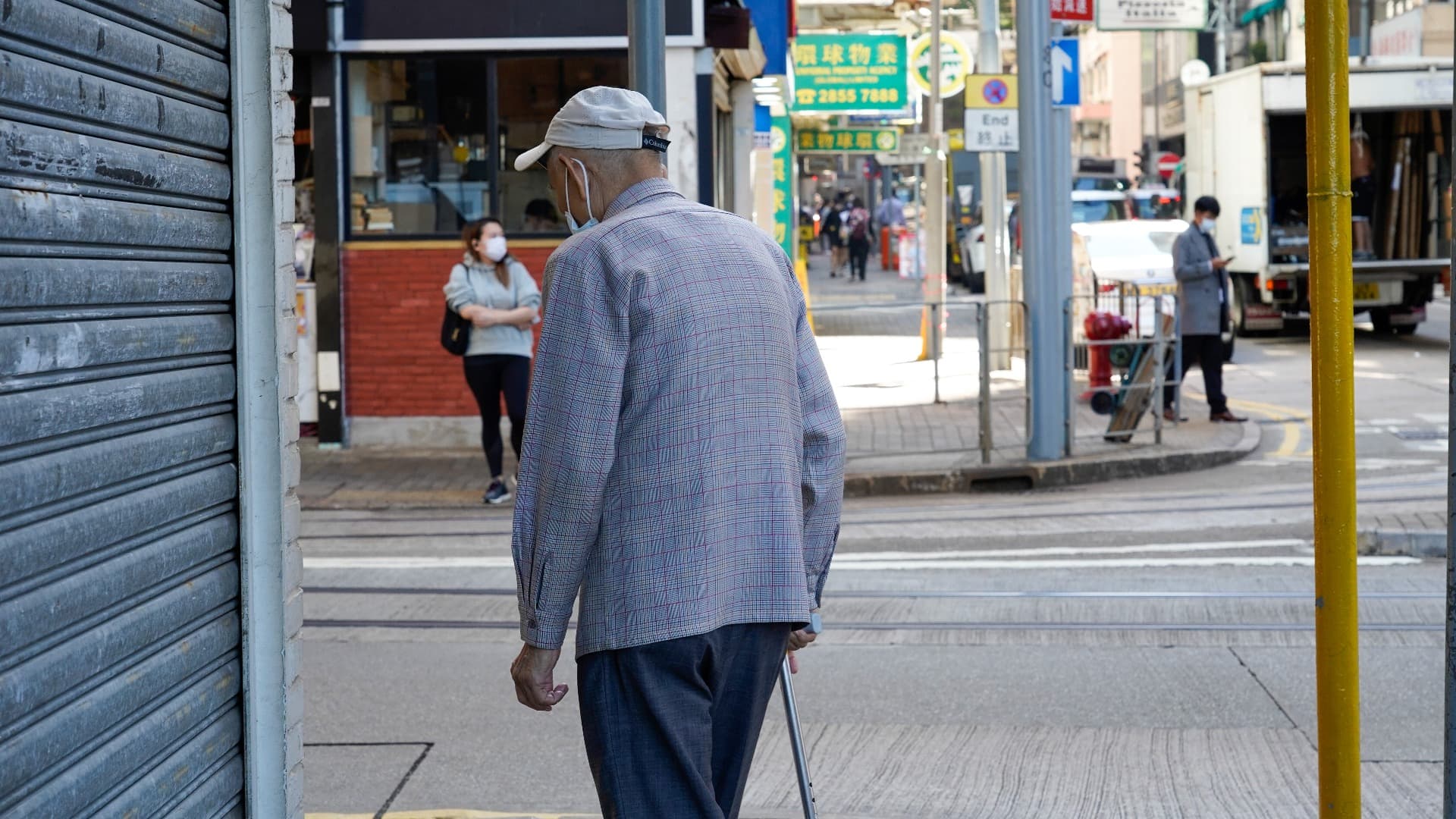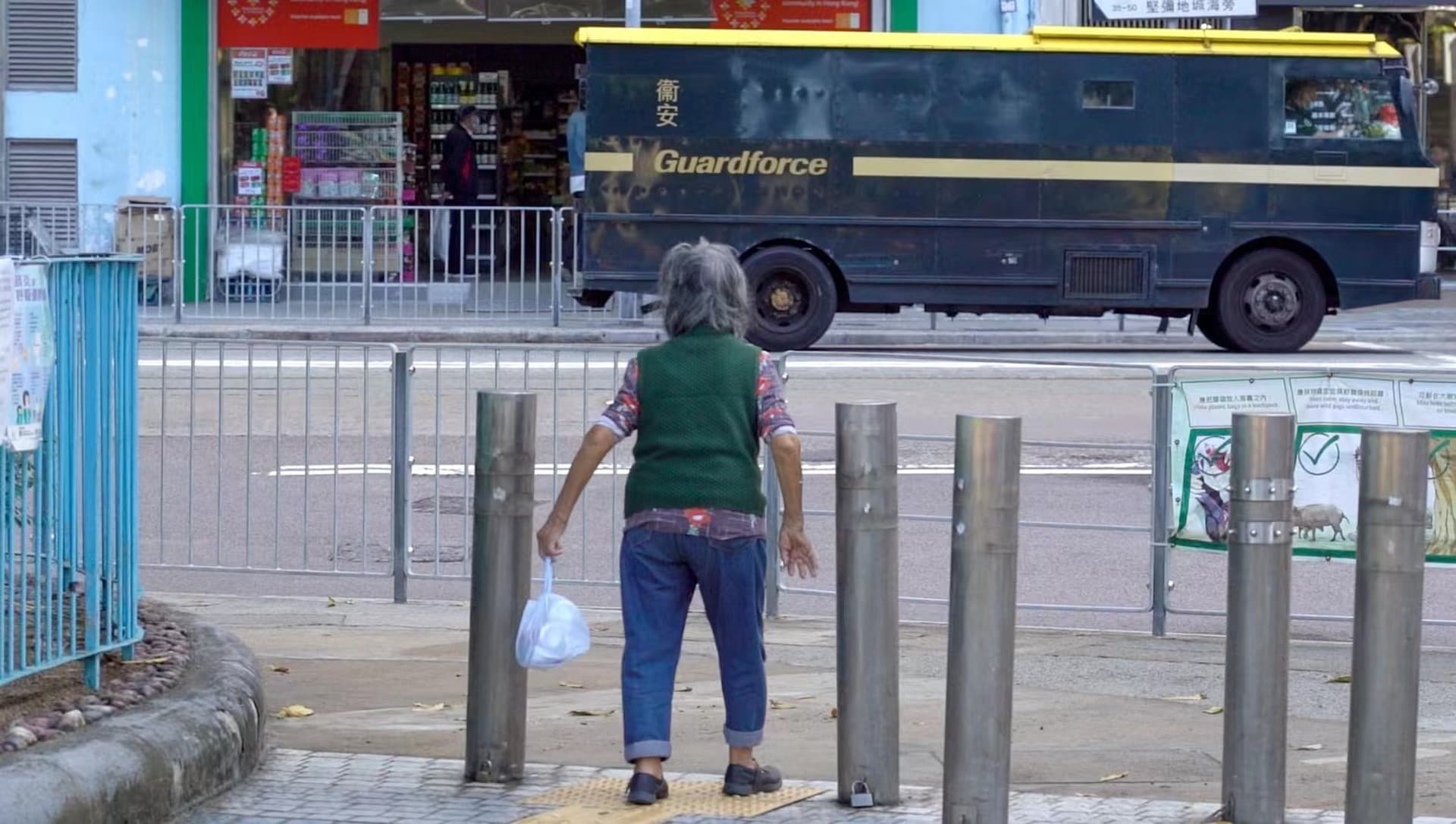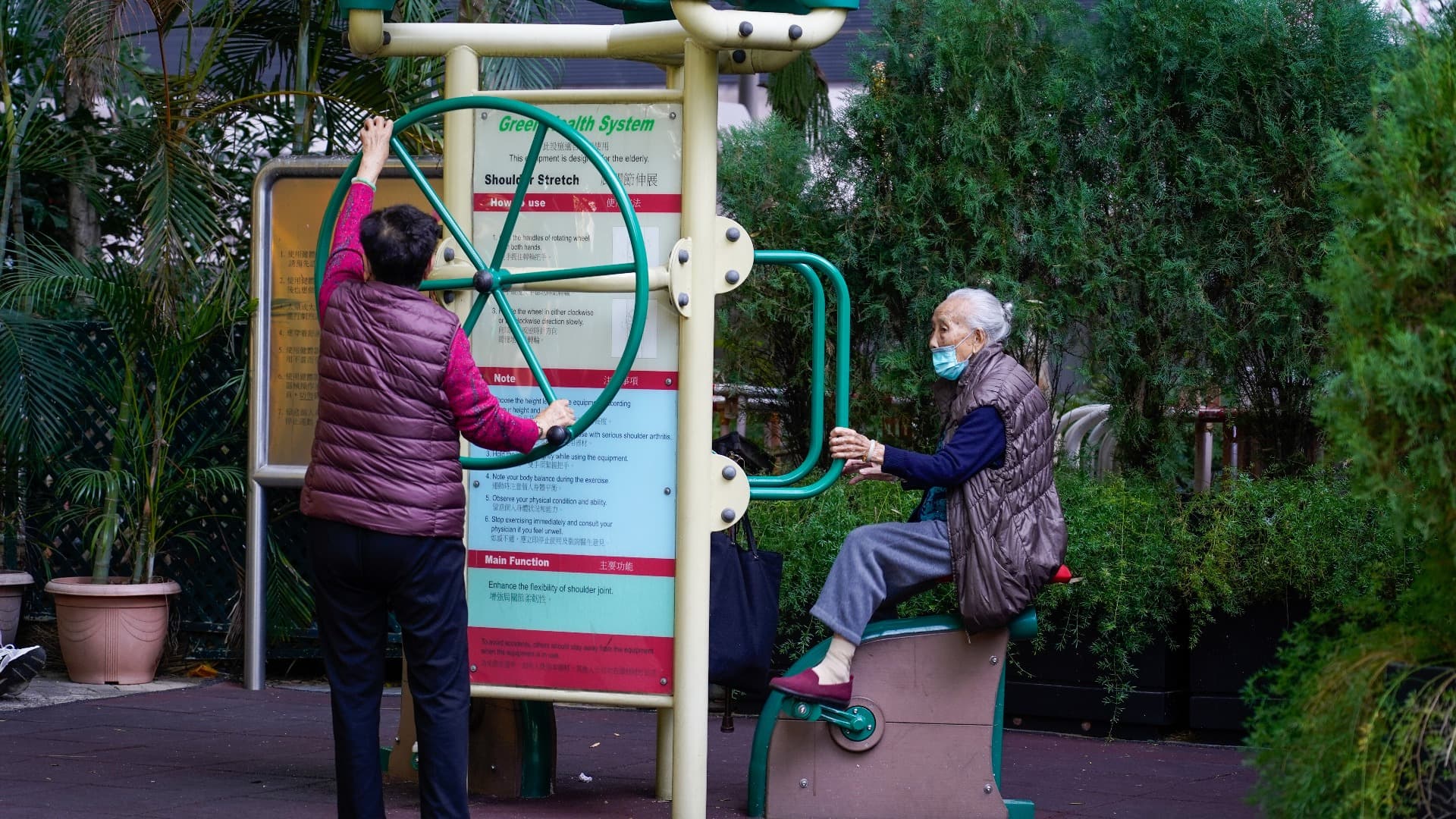“An older adult said to me when celebrating his birthday ‘Stop wishing me a long life. It’s too tired to live, I wish I could die as soon as possible,’” said Wen Hin Kwong, a social worker from the Hong Kong West Point Baptist Church Neighborhood Elderly Center. He has provided care services to older adults for seven years.
Hong Kong is an aging society. Nearly 28% of Hong Kong’s population is over 60, compared with 18.7% in China, according to the Census and Statistics Department.
Since 2013, many elderly people have had accidents at home, which forced the government to require more home care services for older adults, said Wen.
“Some elderly died in a ‘garbage room’ for a long time before anyone found them,” said Wen. “It’s true. They died in a house like that, and stank.”
In 2020, the number of suicides among people aged 60 and above was 438, the highest since records began 47 years ago, based on Samaritan Befrienders Hong Kong’s annual report.
In contrast to the focus on the suicides among other age groups, such as students in recent years, the neglect of seriousness of older adults is a tragedy, according to the Suicide Prevention Research Centre of the University of Hong Kong.
Older adults account for a large proportion of the suicide group in Hong Kong, although the number is small, the rate often exceeds other age groups.
Suicide is “more than just emotional distress, but have many reasons behind such emotions”, which includes inner emptiness issues of older adults, poor elder care home services, and lack of social support said Wen.
CHAPTER Ⅰ
Lack of Company and Goal“The elderly people in Hong Kong are quite helpless,” said Tsang Chin Kwok, the executive director of the Samaritan Befrienders Hong Kong, which is a non-government organization and provides help for people with suicidal tendencies or behaviors.

An older adult carrying her shopping bag, Hong Kong. JMSC/Christine Du
Many of them are living alone with their spouse or without. Their children usually leave them after marriage. Maybe their children will provide them a helper, but most of them do not have any help at all, and feel very lonely, according to Tsang.
“The elderly know their children are very busy, they don’t want to bother them, some of them even think it’s a sin,” said Wen. “An older adult once asked me, ’Why don’t my kids even have time to have dinner with their parents?’”
Meanwhile, older adults feel their value is going down rapidly, they can’t find their self-identity. This is especially serious for males and well-educated ones. They used to be the primary income of the family, the most important member. But after their retirements, they feel like being treated differently as before, said Tsang.



Losing life’s purpose makes them gloomy. Waking up naturally is no longer an enjoyment, but boredom. “For them, if they wake up naturally every day, it’s actually a loneliness,” said Wen.
Therefore, some older adults lose their passion for socializing with others and outdoor activities. In some severe cases, they become hidden, and even wouldn’t want to receive elderly services provided by social and governmental organizations, said Wen.
“Without life goals, there is no difference between men and salted fish,” Wen added.
CHAPTER Ⅱ
Care homes’ services problemTwo-thirds of the Hong Kong elderly homes are private and in old buildings with very little governmental support. Currently, only 9% of the private elderly homes have voluntarily joined the Association of Gerontology’s scheme for residential services, which aim to supervise and improve the care services for the elderly, according to a study focused on services of private care homes for older adults1.
Without regulations and governmental support, in order to earn more money, many private elderly homes have set higher expenses or lowered their quality of services, said Tsang.
Most older adults in elderly homes were not satisfied with the insufficient facilities, daily mild exercise, and staff’s attitude. Some of the high-aged elderly were unsatisfied with the services of the shower, eating, and meals quality due to having to wait a long time because of lack of staff, according to a study focused on services of private elderly homes in Hong Kong2.
“How they treat the elderly people, I would say really without any respect,” said Tsang. “There is one case that the elderly people have to take off all their clothes, waiting to be bathed in an open area, that’s sucks.”
Meanwhile, the pandemic also has a huge impact on elderly homes and affects older adults’ mental health. The whole social environment made them feel unhappy. They felt depressed from negative information in TV news, like deterioration, death, and strict restrictions said Wen.
Most of the care homes enforced a non-visit policy, preventing relatives from visiting older adults which makes them more isolated and lonely, said Tsang.
“Of cause in elderly homes, they may not be able to suicide, but a lot of them when they are suffering from a small illness, they just give up easily,” Tsang added.
CHAPTER Ⅲ
Health Care and Financial SupportAnother main reason that caused elderly suicide is an illness. Wen said many elderly diseases cannot be entirely cured, modern treatment merely relieves the pain. Older adults normally cannot afford private health care, so they have to visit public hospitals and wait a long time before treatment.
Even for older adults, non-urgent patients have to wait for more than two hours on average in public hospitals, according to a report about Hong Kong health care from Healthy Matters3.
For public hospitals, people may have to wait more than three years for other specialist out-patient clinics appointments. Special surgery like total joint replacement or cataract operation would take more than five years to wait.
At the same time, private health care fees in Hong Kong are the 2nd most expensive among other countries in the world.
“Our social policy in taking care of the elderly people is a bit outdated right behind the European countries,” said Tsang. “For the government, if they really want to do something, the whole policy has to be changed.”
“All that kind of chronic illness makes them very frustrated, the emotion can be very bad and they feel that there’s no meaning for them to live anymore.”
The average expense for one person per month was at least HK$6,500 to HK$37,999 released by the Census and Statistics Department, but the government provides much lower money than that to older adults as a living allowance.
Old Age Living Allowance (OALA) has been provided to elderly people aged 65 or above, commonly known as “fruit money” which is too little to buy anything else. The monthly payments of normal OALA and higher OALA are HK$2,845 and HK$3,815 respectively, according to the Social Welfare Department.
Nearly 400,000 people aged 65 and over lived below the official poverty line in 2019, which is set at a monthly income of HK$4,400, according to the Census and Statistics Department.
For the elderly who only rely on OALA as income, life could be extremely tough. In order to survive, they choose to collect abandoned cardboard boxes and sell them. But in recent years, the price of recycled cardboard boxes has gone down, older adults found it’s harder to survive only through selling cardboard boxes, according to Wen.
“Some older people said, they collect and sell, collect and sell, that money even isn’t enough for a morning tea,” said Wen.
Some older adults who collect cardboard are simply regarding it as a purpose of life, but many elderly literally live on it, said Wen. At least 5,000 elderly women around city streets, searching cardboard boxes to sell in return for HK$5 per kilogram, according to Bloomberg.
“Hong Kong calls itself a ‘rich city’, but it’s ironic to see such a large number of poor elderly people,” said Wen. “If we are talking about how the government deals with elderly suicide problems, they just hand it over to NGOs.”
About us
Produced by Three Capricorn Team
Interview: Cao Dandan, Christine Du, Arthur Yan
Writing: Arthur Yan
Multimedia (video, story map, graphics): Christine Du
Web Design: Cao Dandan
All photos were taken by Christine Du
References:
1. To Assess the Effectiveness of the Services of Private Residential Care Homes for the Elderly in Hong Kong
2. To Assess the Effectiveness of the Services of Private Residential Care Homes for the Elderly in Hong Kong
3. 8 Things To Know About Healthcare in Hong Kong

